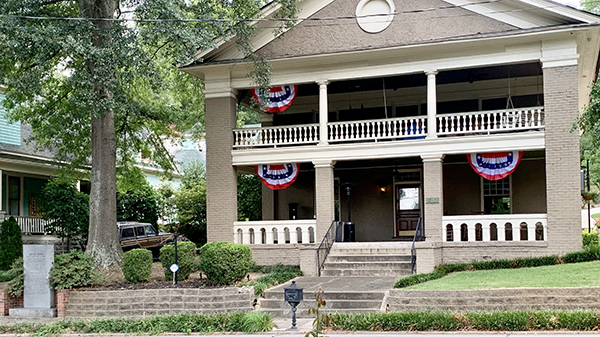Last October, when a church bus crash in Louisiana caused the death of nine senior adults, questions arose about the safety of church vans.
Two months later, the Federal Motor Carrier Safety Administration (FMCSA) expanded transportation regulations to include 15-passenger vans and vehicles designed to transport as few as nine passengers.
According to an Associated Baptist Press report, “all safety regulations — except for requiring a commercial driver’s license and a testing program for alcohol and controlled substances — now apply to for-hire motor carriers operating vehicles designed or used to transport between nine and 15 passengers for direct compensation, in interstate commerce, when the vehicle is driven more than 75 miles from the driver’s normal reporting location.”
In addition to unclear wording, new rules can be difficult to understand because portions of the law are subject to FMCSA interpretation, according to Jim Swedenburg, coordinator of annuity and insurance services with the Alabama Baptist State Board of Missions.
Despite this confusion, he encourages churches to take these rules seriously and follow the law.
“These regulations have been put in place because the U.S. Senate and House are concerned about the number of accidents that have resulted in fatalities in these types of vehicles,” he said.
Unfortunately, some churches in Alabama have seen firsthand the importance of the new regulations.
“Two Alabama Baptist churches have had fatal accidents in this type of vehicle — nine to 15 passengers — in the past three years,” said Swedenburg.
“Both of these were 15-passenger vans. Had these regulations been in place when those accidents occurred, those churches would have been fined.”
According to Swedenburg, the best way for churches to comply with FMCSA regulations is to be open and honest with insurance companies about any travel plans.
“The insurance company will have to approve what they are doing because they will have to pay the bill if something happens,” he said. “We recommend that churches use an insurance company that specializes in church insurance like Guide One, the Annuity Board’s partner for property insurance.”
To avoid rule violations and fines, Swedenburg suggests church leaders consider different transportation options for trips.
“I think it’s time for churches to consider leasing vehicles on a per trip basis, rather than purchasing vehicles and trying to keep up with the insurance requirements and federal regulations,” he said.
Churches can charter buses for long trips, but they should request the United States Department of Transportation number before hiring any carrier, according to Donna Channel with the FMCSA consumer and public affairs office.
With that information, a church can log onto www.safersys.org for information such as the company’s safety rating and crash history and whether the company is an authorized for-hire carrier.
Nevertheless, churches who continue using 15-passenger vans should follow these tips from Guide One Insurance:
–Remove the rear seat.
–Buy high-quality tires. Keep the gas tank full.
–Limit passengers to 10.
–Drive conservatively.
–Load forward seats first.
–Never pull a trailer.
–Never load cargo on the roof.
–Conduct pre- and post-trip inspections.
–Require seatbelt use.
(Anthony Wade, ABP contributed)





Share with others: